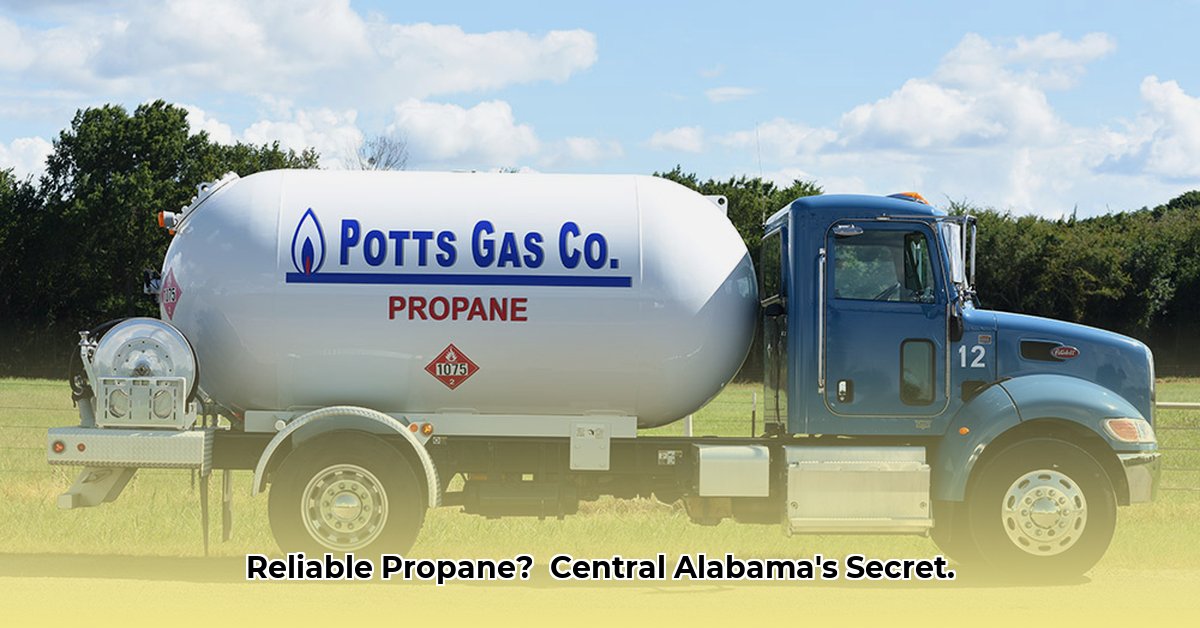
Chilton Propane Gas Company: A Case Study in Central Alabama's Propane Market
Chilton Propane Gas Company serves the Central Alabama region, providing propane for residential and commercial needs. This case study analyzes their operations, competitive landscape, and potential for future growth, offering actionable recommendations for enhanced performance and market share. How does Chilton Propane maintain its position in a competitive market, and what strategies could further solidify its success?
Chilton Propane Gas Company: Competitive Landscape Analysis
Central Alabama's propane market is fiercely competitive. Numerous companies offer similar services, leading to potential price wars. However, Chilton Propane's strategy focuses on building strong customer relationships through reliable service and fair pricing, rather than solely competing on price. This customer-centric approach, while effective, may limit growth opportunities in a market increasingly driven by digital marketing and technological advancements. A key question is: how effectively does their current approach translate to attracting and retaining customers in the long term?
Chilton Propane's Strengths and Weaknesses: A Quantitative Assessment
While anecdotal evidence suggests strong customer service, a comprehensive analysis requires concrete data. Key performance indicators (KPIs) are needed to assess market share, customer satisfaction, delivery efficiency, and operational costs. For example, what percentage of the Central Alabama market does Chilton Propane currently serve? What is the average customer satisfaction rating based on verifiable reviews and feedback? How efficient are their current delivery routes, including fuel consumption and delivery times? Addressing these questions with quantifiable data provides a more accurate picture of Chilton Propane's performance. A lack of such data currently hinders a comprehensive evaluation of the company's true strengths and weaknesses.
Charting a Course for Success: Strategic Recommendations
To optimize performance and achieve sustainable growth, Chilton Propane should adopt a multi-pronged approach encompassing short-term and long-term strategic goals.
Short-Term Goals (Within 1 Year)
Enhance Digital Presence: Develop a user-friendly website and active social media presence to increase brand visibility and reach a wider audience. This is crucial for capturing a larger share of the market and attracting new customers. The goal is to increase website traffic by 50% within six months.
Implement Formalized Customer Feedback System: Implement structured surveys and feedback mechanisms (e.g., online forms, phone calls) to systematically gather customer insights and identify areas for improvement. Aim for a 20% increase in customer feedback responses within three months.
Route Optimization: Utilize route optimization software to improve delivery efficiency, reducing fuel consumption and delivery times. Target a 10% reduction in fuel costs and a 5% decrease in average delivery times within the year.
Supplier Negotiation: Actively negotiate favorable contracts with propane suppliers to secure better pricing and secure supply chain reliability. The objective is to achieve a 5% reduction in propane acquisition costs.
Invest in Employee Training: Provide comprehensive training programs focused on customer service and safety procedures. Measure success by a 15% reduction in customer complaints related to service issues within the next six months.
Long-Term Goals (Over 3-5 Years)
Targeted Market Expansion: Conduct thorough market research to identify underserved areas within Central Alabama for potential expansion, focusing on demographic trends and unmet needs. The goal is to expand service to at least two new communities within three years.
Diversify Customer Base: Develop targeted marketing strategies to attract commercial clients (restaurants, small businesses, etc.), diversifying revenue streams and mitigating reliance on residential customers. Aim for a 10% increase in commercial clients within two years.
Strategic Partnerships: Form strategic alliances with complementary businesses (HVAC companies, appliance retailers) to access new customer bases and expand service offerings. The objective is to secure at least three strategic partnerships within five years.
Operational Modernization: Invest in advanced technology (GPS tracking, fuel-efficient vehicles) to enhance operational efficiency and improve safety. Target a 15% improvement in overall operational efficiency within three years.
Explore Energy Service Diversification: Assess the feasibility of expanding into related energy services (natural gas, energy efficiency consultations) to create a more comprehensive and appealing service package for customers.
Risk Mitigation
Chilton Propane faces inherent risks within the propane market. These risks, including fluctuating propane prices, employee turnover, regulatory changes, negative customer feedback, and competition from larger companies, need proactive mitigation strategies. These strategies should involve securing long-term supply contracts, implementing employee retention programs, staying informed on regulatory updates, actively addressing customer concerns, and maintaining a strong brand identity to compete effectively. A formal risk assessment and mitigation plan should be developed and regularly reviewed.
Conclusion: A Recipe for Sustainable Success
By implementing these recommendations, Chilton Propane can significantly enhance its market position, fostering sustainable growth and profitability. The company's success hinges on a data-driven approach, continuous improvement, and a steadfast commitment to superior customer service. Focus on delivering exceptional service, actively managing risks, and adapting to the evolving needs of the Central Alabama market will be key to Chilton Propane's long-term success.